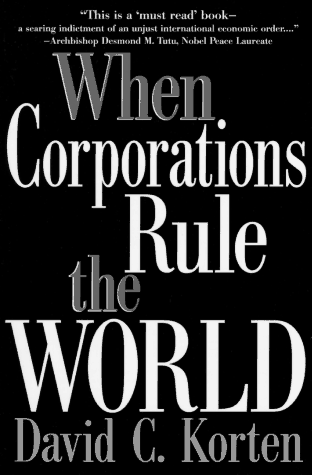|
Requiem for Nature by John Terborgh
For Terborgh, the answer is dark and sobering: despite our best intentions, we may not be able to, for we lack both a coherent plan and, starkly put, the political will to do so. Sustainable development, "the mantra of the conservation movement," is of small help, Terborgh believes, because the realities of economic development are such that where the needs of humans are weighed against the needs of the natural world, nature always loses. Ecotourism, heralded as a model of economic possibility, is not much better because the novelty of seeing giant trees soon wears off and the chances of seeing wildlife are few ("restricted visibility means that most animals are not detected until the visitor is already well within the animal's flight distance, the distance at which a creature flees in the presence of a human"). If we're to save old-growth forests, Terborgh suggests, we'll have to suspend all economic activity in them, ending logging, prospecting, and recreation; only if we leave them alone do they have much of a chance. He recommends national conservation trust funds, strict policing of protected areas and the internationalization of nature protection - but he does not seem optimistic that these suggestions will be widely adopted. It's a grim view, and one that is unlikely to take much sway, no matter how correct it might be. Terborgh notes as much himself in his well-argued polemic, writing, "Whether we like it or not, tropical forests are worth more dead than alive. Nothing can save them short of a, sea change in public opinion that registers not only in politicians' statements but also in their actions. Saving biodiversity will have to become a global obsession, not merely a pastime."
Shelterwood Inspired, in part, by Maine forester Mel Ames and the respect and careful stewardship he shows for his woods, this is a truly beautiful book. The story is simple - a grandfather teaches his granddaughter about the trees and animals in the forest and how to thoughtfully harvest trees from that forest with an eye to the future. The text and superb illustrations convey the gentleness of the grandfather/granddaughter relationship as well as the beauty of the forest and need for stewardship.The paintings combine nicely with a story that is sure to inspire a child's interest in the forest.
When Corporations Rule the World
The harmful effects of transnational corporations
- environmental degradation, social disintegration, worsening
inequality, and the corporate domination of our governmental
institutions - are explored in this hard-hitting title, which
shows how increasing concentrations of economic, social and political
power are being held by a few strong corporations. Korten's portrayal
of the situation is honest and he does not seem to be pushing
an agenda for any purpose other than to make the world a better
place for all people. Something can be done to create a more
just economic order...read the book, and then think about what
you can do to help make things better! |
 Development
by humans is rapidly overwhelming the natural environment. Already,
according to John Terborgh, a professor of environmental science
and botany and co-director of the Center for Tropical Conservation
at Duke University, "the global balance stands at roughly
5 percent for nature (counting only parks and other strict nature
preserves) and 95 percent for humans," and the inevitable
growth of the human population will make matters worse. Moreover,
parks as they are now operated rarely work well. Even in developed
countries, they are often too small to encompass the full spectrum
of plant and animal life, and in developing countries they are
poorly run. So how do we save the tropical rainforests of the
world?
Development
by humans is rapidly overwhelming the natural environment. Already,
according to John Terborgh, a professor of environmental science
and botany and co-director of the Center for Tropical Conservation
at Duke University, "the global balance stands at roughly
5 percent for nature (counting only parks and other strict nature
preserves) and 95 percent for humans," and the inevitable
growth of the human population will make matters worse. Moreover,
parks as they are now operated rarely work well. Even in developed
countries, they are often too small to encompass the full spectrum
of plant and animal life, and in developing countries they are
poorly run. So how do we save the tropical rainforests of the
world?
 This
book makes one look at the world in a different and more disturbing
light. If you can read only one book on how to understand and
address the enormous challenges of our time, When Corporations
Rule the World is it. This eye-opening book is a 'must-read'
- a searing indictment of our unjust international economic order.
It is required reading for anyone who wants to peek behind the
curtain of the global economy and figure out how to save ourselves.
This
book makes one look at the world in a different and more disturbing
light. If you can read only one book on how to understand and
address the enormous challenges of our time, When Corporations
Rule the World is it. This eye-opening book is a 'must-read'
- a searing indictment of our unjust international economic order.
It is required reading for anyone who wants to peek behind the
curtain of the global economy and figure out how to save ourselves.